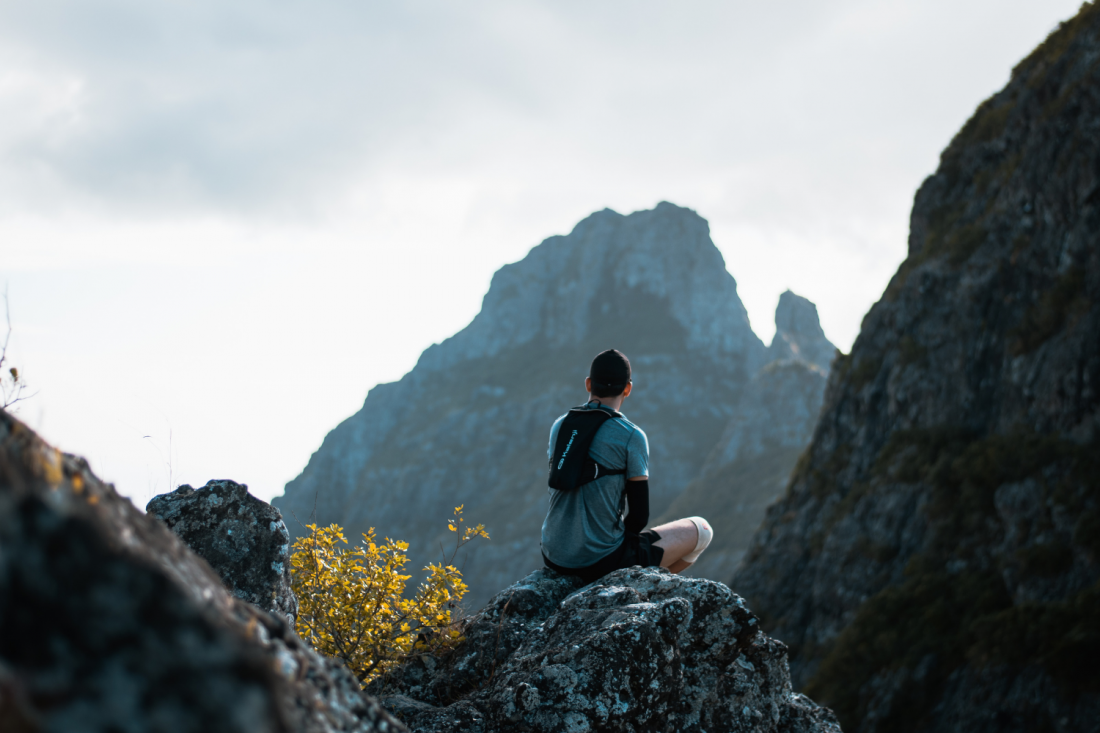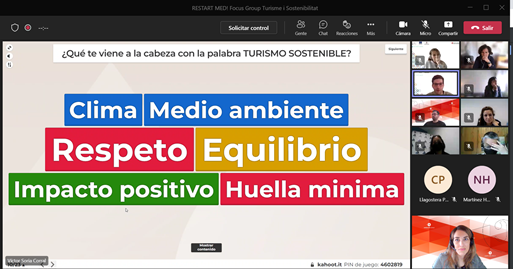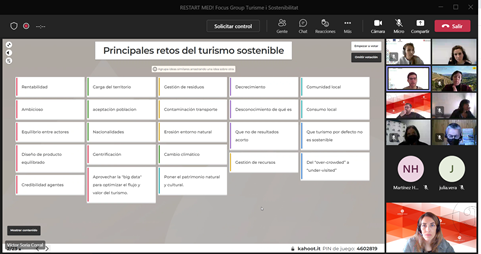RESTART MED! brings together experienced organisations in sustainable tourism to debate about the future of the sector

The Barcelona Chamber of Commerce and the Catalan Tourist Board, partners of RESTART MED!, organised, on the 29th March 2022, an online meeting with organisations who have participated in sustainable tourism EU co-funded projects. These projects were carefully identified during the capitalisation strategy phase of the RESTART MED! project. The event was attended by representatives of MEUDSA, Med Pearls, Med Gaims, Cluster ACT, Emblematic, Wildsea Europe, TOURBAN and RESTART MED! with a broad experience on sustainable tourism.
The meeting titled “Sustainable Tourism, the future that is already present” was part of the round of focus groups that will be organised during the project lifespan in Spain aiming to build up a sustainable community, engaging public and private stakeholders as well as civil society, where to debate about the challenges of the sector in the Mediterranean. The main objective of this session was to analyse the current situation of sustainable tourism in the Mediterranean, identify its main challenges, strengths, weaknesses, and opportunities as well as existing communities or networks focused on sustainable tourism.
Before getting started, participants had the opportunity to briefly introduce their projects and achievements. It was followed by a brief presentation on what RESTART MED! defines as “sustainable tourism”, describing the three aspects of sustainability: Environmental, Socio-cultural and Economic. Then, a group activity encouraged reflection on the differences between tourism and sustainable tourism in order to identify its challenges, taking into account consumer preferences. It included activities to identify the main characteristics of tourism and sustainable tourism and the planning of a simulated trip to Paris which allowed analyse consumers’ preferences. The dynamics showed that there is a long way to go to make tourism sustainable and that the transition must be approached from three different spheres: Supply, demand, and policy.


The final part of the meeting was a debate about how to shift from tourism to sustainable tourism, taking into account consumer preferences. Julia Vera (Wildsea Europe) pointed that it’s crucial to make sustainable products more attractive, an opinion that was supported by Covandonga Rayo (CAST) who believes that communication is key to promote and explain probable high prices of sustainable products and make them attractive to travellers. A mix between awareness raising and regulation is essential according to Vanesa Núñez (Cluster ACT), especially for businesses who need incentives to make a transition towards sustainability. Albert Rodríguez (MEDUSA) agreed with Vanesa Núñez and reinforced the idea that businesses need to see that sustainable products are profitable. From a demand point of view, Sofia Pla (Med Pearls) believes that nowadays travellers think about sustainability when they have resources to afford the price difference. Cristina Llagostera (Wildsea Europe) identified the challenge to make tourists feel that they can satisfy their travelling needs and desires consuming sustainable products. Finally, Noèlia Martínez (Med Gaims) wonders who influences who to be sustainable, here comes a chicken-and-egg situation.
STAY UP TO DATE - FOLLOW US ON TWITTER AND INSTAGRAM!









